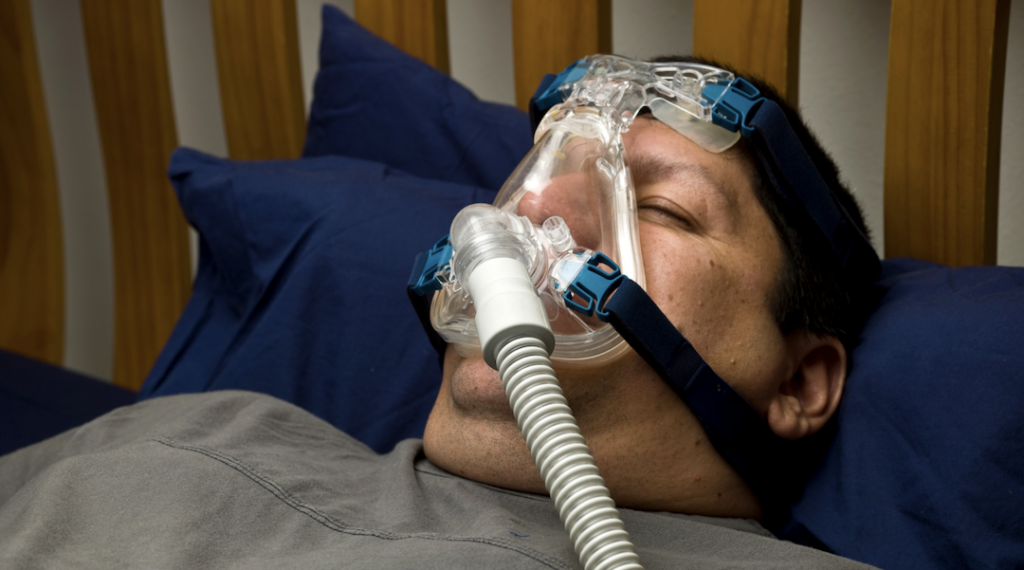When we think about sleep apnea, we tend to think about disrupted sleep, snoring, breathing issues and daytime fatigue. Those are indeed symptoms of sleep apnea, which is a serious sleep disorder that can lead to significant health problems. What many people may not realize is that sleep apnea is often intertwined with obesity—a condition that affects nearly 40% of adults in the United States. Bariatric surgery, a proven and effective weight-loss intervention, has emerged as one of the best ways to resolve obstructive sleep apnea (OSA), the most common type of sleep apnea. As a bariatric surgeon, I have witnessed firsthand how this life-changing procedure not only addresses obesity but also eliminates the burden of sleep apnea for many patients, restoring their quality of life.
Understanding the Link Between Obesity and Sleep Apnea
Obstructive sleep apnea occurs when the airway becomes partially or completely blocked during sleep, disrupting breathing and oxygen levels. Obesity significantly increases the risk of OSA for several reasons. First, it creates excess fat around the neck. Fat deposits in the neck and upper airway can narrow the airway, making it more prone to collapse during sleep. Obesity also causes increased abdominal pressure. Excess abdominal fat can push against the diaphragm, reducing lung volume and exacerbating breathing difficulties at night. And finally, obesity contributes to systemic inflammation by triggering chronic low grade inflammation. It can snowball into upper airway inflammation and reduced muscle tone, further worsening OSA.
These factors make obesity one of the strongest predictors of OSA, with studies showing that over 70% of people with morbid obesity also have sleep apnea.
Why Bariatric Surgery Works for Sleep Apnea
While lifestyle modifications like diet, exercise, and CPAP (continuous positive airway pressure) therapy are often prescribed for managing sleep apnea, bariatric surgery offers a uniquely effective and lasting solution by addressing the root cause: excess weight.
Bariatric surgery stands out as a treatment option because it contributes to substantial and sustained weight loss, whether through gastric bypass, sleeve gastrectomy, or other procedure types. Losing even 10-15% of body weight can dramatically reduce the severity of sleep apnea, while the average weight loss after bariatric surgery (30-40%) often results in complete resolution.
Weight loss stemming from bariatric surgery reduces fat deposits in the neck and airway, alleviating obstruction and improving airflow during sleep. As abdominal fat decreases, so does the pressure on the diaphragm, leading to improved lung function and oxygenation. Bariatric surgery has also been shown to reduce markers of systemic inflammation and unhealthy hormones, which can improve muscle tone in the airway and overall respiratory health.
Really, the proof is in the data. Research indicates that up to 85% of patients experience significant improvement or complete resolution of OSA symptoms following bariatric surgery. For many, this means they can discontinue CPAP therapy altogether.
Beyond Weight Loss: Transforming Lives
Bariatric surgery does more than just reduce weight—it truly transforms lives, and I’ve had the pleasure of seeing that firsthand, again and again. Patients often report that resolving their sleep apnea improves their energy levels, cognitive function, and mood. Additionally, better sleep has cascading benefits for metabolic health, reducing risks of hypertension, diabetes, and heart disease—conditions frequently linked to both obesity and OSA.
Addressing Concerns About Bariatric Surgery
Some patients are hesitant about surgery, fearing complications or long-term risks. However, modern bariatric procedures are safer than ever, with minimally invasive techniques reducing recovery time and complications. The key to success lies in partnering with a multidisciplinary team that provides comprehensive support, including preoperative education, nutritional counseling, and follow-up care. And of course, it’s important to choose your doctor with care.
Conclusion: A Wake-Up Call for Better Sleep
For individuals struggling with obesity and sleep apnea, bariatric surgery offers a unique opportunity to break free from the cycle of poor health and disrupted sleep. It addresses the root cause of OSA—excess weight—while simultaneously improving overall health and longevity. As a surgeon, it’s incredibly rewarding to witness patients not only shed pounds but also reclaim restful nights and vibrant days.
Sleep apnea is more than an inconvenience; it’s a serious health issue with wide-reaching consequences. Bariatric surgery provides a proven, effective solution that transforms lives—one peaceful night at a time. If you’re ready to breathe easier, sleep better, and live healthier, bariatric surgery might just be the wake-up call you need. In Reno, contact the team at Nevada Surgical today to learn more about bariatric surgery. We’re happy to answer your questions.




